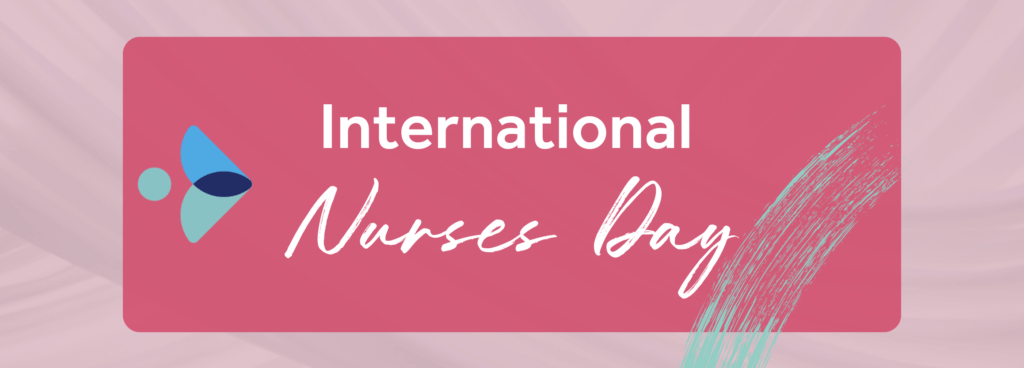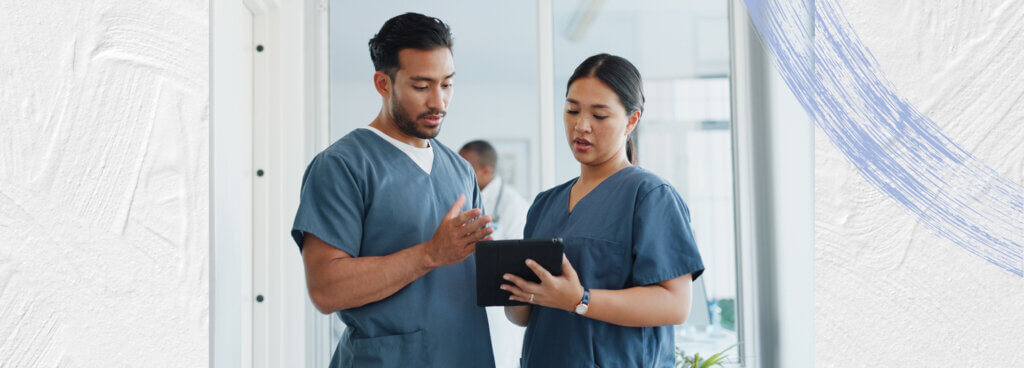Today is exactly one year since the first national lockdown was announced in the UK. Marie Curie are marking the day with a ‘National Day of Reflection’ to reflect on our collective loss, support those who’ve been bereaved and hope for a brighter future. There will be a minute’s silence at 12pm, and Marie Curie are encouraging you to shine a light or create a colourful poster for your window at 8pm to show your support for the day – find out more about how to get involved here.
A lot has changed in the last year in all areas of life, and both the healthcare and education sectors have taken a huge brunt of these changes and challenges. We wanted to use today to also show our huge appreciation for our extraordinary candidates and clients who work in these sectors, and have continued to work their hardest every day to get us collectively through the pandemic, day in, day out. Below we reflect on some of the challenges the sectors have overcome, as well as some positive changes to come out of the last 12 months.
Nursing
One of our busiest divisions this past year has been nursing and we saw a 54% increase year-on-year in fulfilling vital nursing roles in both Acute and Community settings across Kent. We’re incredibly proud of our nursing candidates always, but especially throughout the pandemic, and do all that we can to ensure they have happy and successful placements. Lily, a nurse from Essex who we placed says: “As nurses we are at the eye of the storm in this pandemic and Athona always liaises with me to ensure I am comfortable and prepared to work on COVID wards. Often reassuring me that there are enough PPE in a hospital I am assigned to work at, and to contact them if I have any concerns.”
Psychiatry
Another huge shift over the last year has been the transition that many of our Psychiatry candidates have made to remote working, where we have seen a 60% increase year-on-year in remote working roles in the sector. From a recent Pandemic study from the Mental Health Foundation it’s thought that over half of adults (54%) in the UK feel anxious or worried because of the pandemic, so the need for adequate and professional help has never been greater. Director of our Psychiatry division, Rebecca Coates said “We have seen a large shift in numbers of remote working roles over the past year that we think is due to the pandemic and its knock-on effects. This is predominantly down to the candidates being able to run their community clinics remotely which has really made this a smooth and natural transition”. This drive in demand for clients employing remote workers shows a transition in perceptions of this type of working, especially in Psychiatry, where a patient can have a full consultation from the comfort of their own home via a web-link video call.
Education
The education sector has also taken a huge brunt of changes throughout the last 12 months, with schools being forced to close and virtual learning becoming the ‘new normal’ for students and teachers alike. Our team have worked extremely hard to help our candidates through this difficult time and be available to help in any way they could. Rachel Smoothy, Associate Director of Education says “The pandemic hasn’t stopped our communication with candidates. Although we haven’t been able to meet face to face, we’ve registered people online using Zoom. We’ve been able to complete registrations the same day that we have been contacted, really speeding up the process.”
Revalidation and appraisal
Another area that has seen some positive changes is revalidation and appraisal, with adjustments to the process meaning that it focusses less on paperwork, and more on support. The Academy of Royal Medical Colleges worked with the GMC and NHS England to reassess the input required from doctors, to focus on reducing the burden of preparation time and to acknowledge the sudden cessation of access to CPD events due to social distancing.
By reducing preparation time and paperwork required, the focus is now more around the conversation with the appraiser, giving doctors an opportunity to discuss their health and wellbeing with a senior doctor and to explore how the pandemic has impacted them. Many doctors will have been frightened, facing the unknown, worried for their patients, their families and their own health. Doctors are likely to have witnessed or been involved in situations no doctor expected to in their lifetime, so it’s positive that this process is now more focussed on doctors debriefing on their experiences and being able to talk to someone. Dr Pankaj Lai said “Last year has taught us that together with love, compassion and understanding, we can overcome the gravest of obstacales”.
But please don’t just wait for your appraisal, should any of our candidates wish to discuss their experiences, we are here to listen, and we can help support you to seek help if you feel you would benefit from it.
As we look back on the last year, taking the time today to reflect on the loss we have all suffered, we must now start look to the future, to heal and to embrace the change that has been accelerated, this sudden need to change out of adversity will undoubtedly shape our future.
Who would have thought a year ago that the NHS could utilise technology to the extent that it has, that doctors could work remotely doing virtual ward rounds to keep patients needing urgent care ‘safe’ and for those on the waiting lists to ‘wait well’? Who would have thought that virtual clinics could become the norm, or that the patient initiated follow up would now move with such pace?
We hope to see these positive innovations evolve further and shape the care delivered in the NHS over the coming years.
“Humanity will always prevail against any pandemic” – Dr Kedir Hamid
Catch up on more of our blogs here



